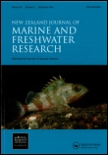
NEW ZEALAND JOURNAL OF MARINE AND FRESHWATER RESEARCH
Scope & Guideline
Diving Deep into the Science of Aquatic Environments
Introduction
Aims and Scopes
- Marine Ecology and Biodiversity:
The journal focuses on the ecological dynamics of marine species and their interactions within ecosystems, including studies on species diversity, habitat use, and population dynamics. - Freshwater Ecosystem Management:
Research on freshwater systems is a core area, emphasizing management practices, restoration efforts, and ecological assessments to maintain biodiversity and ecosystem health. - Aquaculture and Fisheries Science:
There is a significant emphasis on aquaculture practices and fisheries management, exploring the sustainable use of aquatic resources and innovative farming techniques. - Impact of Climate Change and Anthropogenic Activities:
The journal addresses the effects of climate change, pollution, and urbanization on aquatic ecosystems, providing insights into how these factors influence biodiversity and ecosystem functions. - Traditional Ecological Knowledge (TEK):
Incorporating Māori perspectives and traditional ecological knowledge into marine and freshwater research is a unique aspect of the journal, highlighting the importance of indigenous practices in ecosystem management.
Trending and Emerging
- Microplastics and Pollution Studies:
There is an increasing focus on the impacts of microplastics and other pollutants on aquatic life, highlighting the growing concern over environmental contamination and its effects on ecosystem health. - Climate Change Impacts on Aquatic Systems:
Research examining the implications of climate change, such as marine heatwaves and changing precipitation patterns, is gaining traction as scientists seek to understand and mitigate these effects. - Biodiversity Conservation Strategies:
Emerging studies are emphasizing conservation strategies, particularly related to habitat restoration and the management of invasive species, to protect native biodiversity and maintain ecosystem services. - Integration of Indigenous Knowledge in Research:
There is a noticeable trend towards incorporating indigenous knowledge and perspectives in aquatic research, acknowledging the value of traditional ecological practices in contemporary environmental management. - Genomic and Molecular Approaches:
The application of genomic and molecular techniques to study aquatic species is on the rise, enabling researchers to delve deeper into the genetic diversity and health of populations, which is crucial for conservation efforts.
Declining or Waning
- Historical Studies on Pre-Industrial Ecosystems:
There has been a noticeable decrease in studies focused on historical baselines of ecosystems prior to significant anthropogenic impacts, which may indicate a shift towards contemporary issues and immediate management strategies. - Taxonomic Descriptions of New Species:
While taxonomic studies remain important, the frequency of new species descriptions has waned, possibly due to the completion of extensive surveys and the need for more applied research. - Single-Species Management Approaches:
Research focusing solely on single-species management is becoming less common as there is a growing recognition of the need for ecosystem-based management approaches that consider interspecies interactions and broader ecological contexts.
Similar Journals
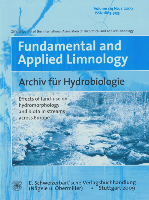
Fundamental and Applied Limnology
Advancing Aquatic Science: Insights into Freshwater EcosystemsFundamental and Applied Limnology is an esteemed academic journal dedicated to the exploration of freshwater ecosystems, bridging the gap between fundamental research and practical applications. Published by E Schweizerbart'sche Verlagsbuchhandlung in Germany, this journal has been a vital resource in the fields of aquatic science and ecology since its inception in 2007. With its ISSN 1863-9135 and E-ISSN 1863-9135, it provides a platform for researchers to disseminate significant findings related to limnology, contributing to a rich understanding of freshwater biodiversity, water quality, and ecological interactions. Although currently rated in the Q3 quartile for aquatic sciences and ecology as per the 2023 rankings, it remains a valuable outlet for interdisciplinary research and practical insights, facilitating critical advancements in environmental management. Open access options enhance its visibility and accessibility, making it indispensable for researchers, professionals, and students alike who are committed to advancing the scholarship in freshwater studies. Engaging with this journal not only opens doors to the latest research findings but also fosters collaboration and innovation in the ecological community.

BOLETIM DO INSTITUTO DE PESCA
Connecting researchers for impactful aquatic discoveries.BOLETIM DO INSTITUTO DE PESCA, published by the Instituto Pesca, is a Brazilian journal dedicated to advancing the fields of Animal Science and Aquatic Science. With its Open Access policy adopted in 2008, the journal ensures that research is widely disseminated, fostering collaboration and innovation among researchers, professionals, and students alike. Despite its recent Q4 category rankings in the 2023 metrics for both disciplines, the journal plays a vital role in providing a platform for emerging studies and critical discussions related to aquatic ecosystems and fisheries management. Covering a wide range of topics within its scope, BOLETIM DO INSTITUTO DE PESCA publishes original research, reviews, and case studies, stimulating academic dialogue and contributing to the sustainable management of aquatic resources in Brazil and beyond. This journal is an essential resource for anyone invested in marine and freshwater biology, ecology, and conservation.

International Journal of Limnology
Connecting Scholars to Freshwater FuturesThe International Journal of Limnology, published by EDP SCIENCES S A, is a cutting-edge journal dedicated to the field of aquatic sciences, with a strong emphasis on limnology—the study of inland waters. Headquartered in France, the journal serves as a vital resource for scholars and practitioners alike, aiming to advance the understanding of freshwater ecosystems and their management. With an e-ISSN of 2823-1465 and classified within the Q3 category of the 2023 Aquatic Science quartiles, it occupies a significant niche in academic research, ranking 150 out of 247 in Scopus listings. The journal’s open access policy ensures that research findings are widely disseminated, facilitating collaboration and innovation across global aquatic science communities. Published continuously from 2022 to 2024, the International Journal of Limnology aspires to contribute to sustainable practices and enhance ecological understanding, making it an essential publication for researchers, professionals, and students committed to the stewardship of aquatic resources.

Aquatic Biology
Innovating Research for a Sustainable Aquatic FutureAquatic Biology, published by INTER-RESEARCH, is a leading open-access journal dedicated to the scientific exploration of aquatic ecosystems, promoting innovative research in the fields of aquatic science, ecology, and oceanography since its inception in 2007. With an E-ISSN of 1864-7782, the journal publishes original articles, reviews, and data papers that contribute to the understanding of aquatic biology in its myriad forms. As of 2023, it holds a respectable Q3 ranking across multiple categories including Aquatic Science and Ecology, reflecting its sustained impact within the scientific community. Situated in Germany, Aquatic Biology operates a policy of open access since 2014, ensuring that valuable research findings are readily available to researchers, professionals, and students worldwide, thus fostering collaboration and knowledge dissemination. By addressing diverse aquatic topics, the journal plays a crucial role in advancing the study and conservation of marine and freshwater environments, making it an essential resource for anyone seeking to deepen their understanding of aquatic systems.
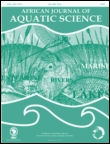
AFRICAN JOURNAL OF AQUATIC SCIENCE
Innovating solutions for freshwater and marine challenges.AFRICAN JOURNAL OF AQUATIC SCIENCE, published by TAYLOR & FRANCIS LTD, is a premier scholarly journal dedicated to the field of aquatic science, ecology, and environmental management, playing a crucial role in advancing research and knowledge in these vital areas. With an impressive Q2 ranking in both Aquatic Science and Ecology, Evolution, Behavior and Systematics, the journal seeks to publish high-quality research encompassing a wide range of topics related to freshwater and marine ecosystems, including biodiversity, conservation strategies, and the impacts of climate change. Featuring a rich history of publication from 2000 to 2024, the journal not only embraces rigorous peer review but also aims to foster collaboration and dialogue among researchers, practitioners, and students interested in aquatic environments. Readers will find that the journal’s commitment to impactful scientific communication is reflected in its notable rankings within the Scopus database, making it an essential resource for those engaged in aquatic research and management.

INTERNATIONAL REVIEW OF HYDROBIOLOGY
Connecting Minds to Address Environmental ChallengesINTERNATIONAL REVIEW OF HYDROBIOLOGY is a prestigious academic journal dedicated to the dynamic fields of Aquatic Science and Ecology, Evolution, Behavior, and Systematics. Published by a reputable German publisher, this open-access journal ensures that groundbreaking research is readily available to a global audience, fostering collaboration and innovation within the scientific community. With an impressive impact factor and classification within the Q2 category of both Aquatic Science and Ecology, it ranks notably high on Scopus, standing at 211 out of 721 in Ecology and 84 out of 247 in Aquatic Science as of 2023. Covering a broad scope from fundamental hydrobiological research to applied ecological studies, the journal plays a crucial role in advancing knowledge and addressing contemporary environmental challenges. Researchers, professionals, and students will find INTERNATIONAL REVIEW OF HYDROBIOLOGY to be an essential resource for informing their own work and contributing to the global dialogue on aquatic systems and their conservation.
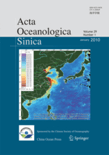
ACTA OCEANOLOGICA SINICA
Illuminating the Complexities of Aquatic EnvironmentsACTA OCEANOLOGICA SINICA, published by SPRINGER, stands as a significant voice in the fields of Aquatic Science and Oceanography, contributing vital research and insights since its inception in 1985. With an ISSN of 0253-505X and an E-ISSN of 1869-1099, this journal maintains a strong international focus, delivering high-quality peer-reviewed articles that address pressing marine and freshwater environmental issues. Although it operates under a subscription model, its Q3 ranking in both Aquatic Science and Oceanography demonstrates its solid standing within Scopus, placing it in the 48th and 44th percentiles respectively. The journal aims to foster knowledge exchange and collaboration among researchers, professionals, and students by providing a platform for innovative studies and comprehensive reviews. With a dedicated editorial board and a commitment to advancing scientific understanding, ACTA OCEANOLOGICA SINICA serves as an essential resource for anyone engaged in the study of oceanographic phenomena and aquatic ecosystems.
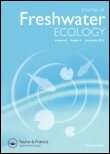
JOURNAL OF FRESHWATER ECOLOGY
Unveiling the mysteries of freshwater biodiversity.JOURNAL OF FRESHWATER ECOLOGY, published by Taylor & Francis Inc, is an esteemed source of research dedicated to advancing the understanding of freshwater ecosystems. Established in 1981, this Open Access journal has provided a platform for innovative studies and groundbreaking articles relevant to the fields of Aquatic Science and Ecology. With its HIndex reflecting a commitment to quality scholarship, the journal is currently classified in the Q3 category for both Aquatic Science and Ecology, Evolution, Behavior and Systematics, indicating its respectable impact within these disciplines. The journal ranks within the 45th percentile in Ecology and the 41st percentile in Aquatic Science on Scopus, highlighting its relevance to a global audience of researchers and practitioners. By facilitating unrestricted access to research findings since 2017, JOURNAL OF FRESHWATER ECOLOGY aims to enrich our understanding of freshwater systems and their conservation, making it an essential resource for those invested in ecological research and environmental sustainability.

LIMNETICA
Innovating research in water science and ecology.LIMNETICA is a prestigious academic journal dedicated to advancing the field of Aquatic Science, Ecology, and Water Science and Technology. Published by the Asociación Española de Limnología in Spain, this journal serves as a vital platform for researchers and professionals seeking to share their findings and insights from 1996 to 2024. With a commendable Q2 ranking in Ecology and notable Q3 rankings in Aquatic Science and Water Science and Technology, LIMNETICA emphasizes high-quality, peer-reviewed research that contributes to our understanding of freshwater ecosystems. Although currently not classified under Open Access, its rigorous indexing and Scopus rankings—positioning it in the top 64th percentile for Environmental Science—illustrate its impact in the scientific community. Researchers, students, and professionals are encouraged to engage with LIMNETICA to stay abreast of key developments and foster collaborative efforts in aquatic research.
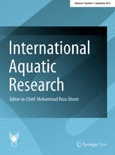
International Aquatic Research
Empowering aquatic scientists to make waves in research.International Aquatic Research, published by the Islamic Azad University, Tonekabon Branch, is a vital open-access journal dedicated to advancing the field of aquatic sciences since its inception in 2009. With an ISSN of 2008-4935 and an E-ISSN of 2008-6970, the journal plays a significant role in disseminating high-quality research findings from Iran and around the globe. It covers a broad range of topics in aquatic biology, fisheries science, and marine ecology, making it a valuable resource for researchers, professionals, and students alike. As of 2023, it ranks in the third quartile (Q3) of the aquatic science category with a Scopus rank of #138 out of 247 in Agricultural and Biological Sciences, reflecting its growing influence in the field. With a commitment to promoting scientific knowledge and fostering collaboration among aquatic research communities, International Aquatic Research is positioned as an essential platform for those dedicated to understanding and conserving marine and freshwater environments.